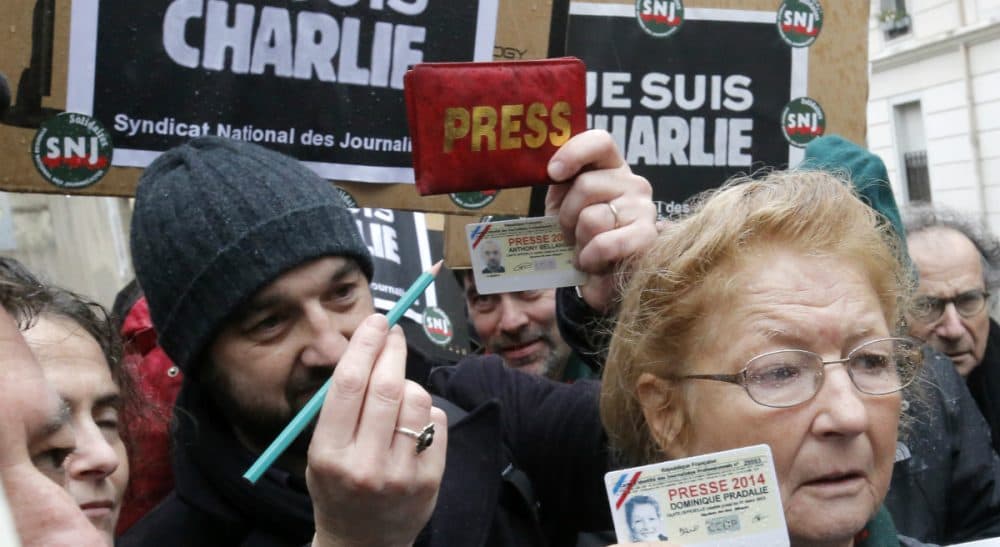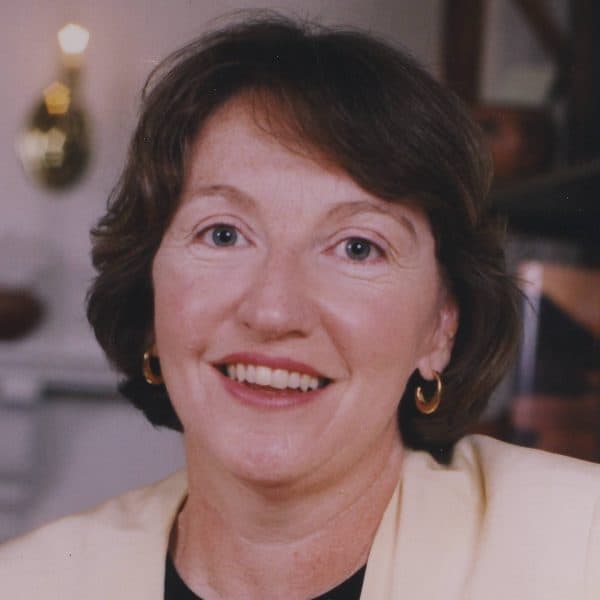Advertisement
Mightier Than The Sword: Freedom Of Expression In The Age Of Terrorism

Wednesday, thousands of Parisians held aloft ballpoint pens and charcoal pencils in the Place de la République, acts of defiance against the cowards who used Kalashnikovs to kill satirists armed only with the tools of their trade.
“Je Suis Charlie,” read the signs that blossomed in public squares across France in the hours after masked gunmen slaughtered 12 people (including two police officers) at the Paris offices of Charlie Hebdo, the French humor magazine that was attacked for the second time in four years for publishing material that gave offense to violent extremists who call themselves followers of Islam.
To declare 'I am Charlie' is to embrace the idea that democracy itself is incompatible with censorship.
Bringing the perpetrators in Paris to justice and securing civil society is, of course, the immediate concern. The attack will also provoke pressing questions about immigration and assimilation, about religious and racial acceptance. But those who held candles in the winter wind know that the preservation of free expression is the paramount political issue facing France today. To declare “I am Charlie” is to embrace the idea that democracy itself is incompatible with censorship. The right to speak includes the right to offend and, by all accounts, Charlie Hebdo was an equal opportunity provocateur, mocking all French politicians in equal measure, as well as skewering Catholics, Muslims and Jews. This was an assault, President François Hollande said, on “the expression of freedom” that is the “spirit of the republic.”
What was clear to those clutching votive candles, bundled up against the cold in Paris, is far less certain on this side of the Atlantic these days. We have become dangerously ambivalent in this country about the value of free expression, more sensitive to the danger of giving offense than protective of our constitutional right to do so.
The Sony Corporation was all too quick to agree to the demands of hackers that it not release “The Interview,” a sophomoric comedy about a fictional attempt on the life of North Korean leader Kim Jong Un. It was only after President Barack Obama criticized the company’s capitulation to hackers who had threatened violence that Sony released the film to independent theaters and through streaming Internet outlets. The FBI has concluded that North Korea orchestrated the hack of Sony’s files, a charge the North Korean government denies.
At Brandeis University, where I teach, a student who used her Twitter account to express a lack of sympathy for two New York City police officers executed in Brooklyn last month has been targeted with death threats and calls for her expulsion. Another student who indignantly publicized her inflammatory tweets has, himself, been subject to intimidation on social media. What should have been an opening for a deeper conversation about myriad levels of frustration stemming from a police shooting in Ferguson, Missouri, and a fatal police chokehold on Staten Island became, instead, a fresh opportunity to demonize those with whom we disagree about the meaning of the deaths of Michael Brown and Eric Garner.
Students are not alone in their self-righteous polarization. In New York City, the head of the police union accused Mayor Bill de Blasio of having “blood on his hands” in the murder of Officers Wenjian Liu and Rafael Ramos, because the mayor had endorsed the right of peaceful demonstrators to protest the Ferguson and Staten Island killings. It was an odious remark, but it was also well within the bounds of protected speech, as is the infantile habit of NYPD officers turning their backs on de Blasio at public appearances, actions that Police Commissioner Bill Bratton unwisely has suggested could invite departmental discipline.
Advertisement
We have become dangerously ambivalent in this country about the value of free expression, more sensitive to the danger of giving offense than protective of our constitutional right to do so.
Will the murders of the Brooklyn police officers bring a quiet end to months of nationwide demonstrations calling for reform of police use of lethal force against African-American men? Will protesters find a way to keep the conversation alive or fade away like Occupy Wall Street demonstrators before them?
In Paris, self-censorship apparently is not an option. Last night, the directors of Le Monde and Radio France and France Télévisions promised to help keep Charlie Hebdo publishing. In a joint statement, the French journalists said they did so “to preserve the principles of independence and freedom of thought and expression,” which they called “the guarantors of our democracy.”
Ours, too.
